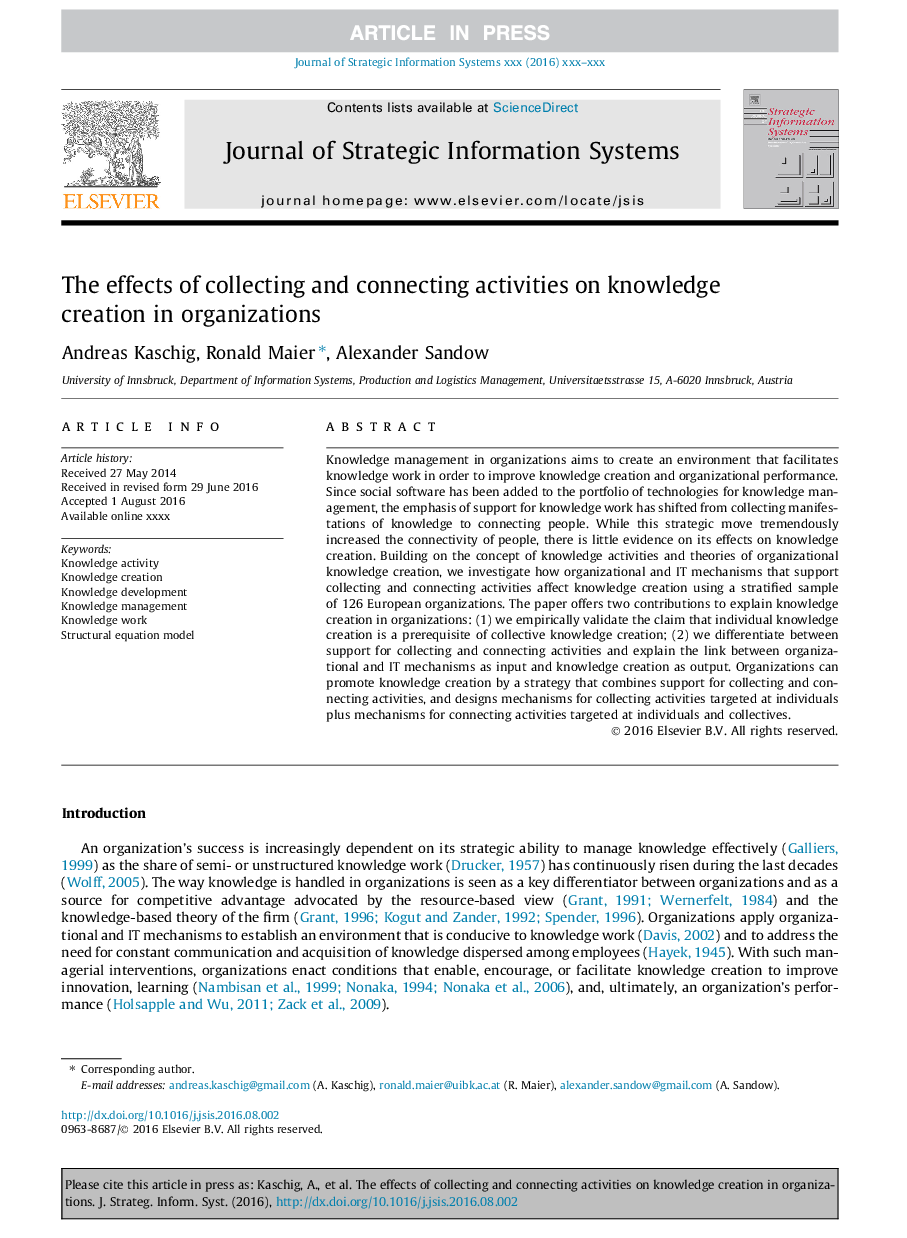| Article ID | Journal | Published Year | Pages | File Type |
|---|---|---|---|---|
| 4973098 | The Journal of Strategic Information Systems | 2016 | 16 Pages |
Abstract
Knowledge management in organizations aims to create an environment that facilitates knowledge work in order to improve knowledge creation and organizational performance. Since social software has been added to the portfolio of technologies for knowledge management, the emphasis of support for knowledge work has shifted from collecting manifestations of knowledge to connecting people. While this strategic move tremendously increased the connectivity of people, there is little evidence on its effects on knowledge creation. Building on the concept of knowledge activities and theories of organizational knowledge creation, we investigate how organizational and IT mechanisms that support collecting and connecting activities affect knowledge creation using a stratified sample of 126 European organizations. The paper offers two contributions to explain knowledge creation in organizations: (1) we empirically validate the claim that individual knowledge creation is a prerequisite of collective knowledge creation; (2) we differentiate between support for collecting and connecting activities and explain the link between organizational and IT mechanisms as input and knowledge creation as output. Organizations can promote knowledge creation by a strategy that combines support for collecting and connecting activities, and designs mechanisms for collecting activities targeted at individuals plus mechanisms for connecting activities targeted at individuals and collectives.
Keywords
Related Topics
Physical Sciences and Engineering
Computer Science
Information Systems
Authors
Andreas Kaschig, Ronald Maier, Alexander Sandow,
